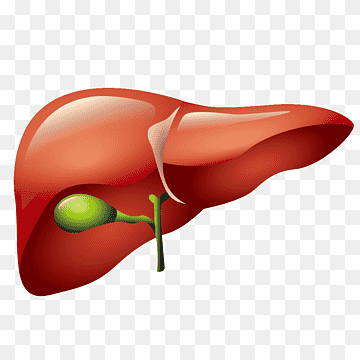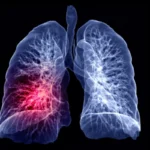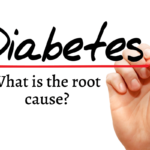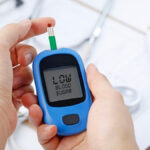How To Reduce Fatty Liver
Introduction
The liver, among all organs, performs the most diverse range of functions and protects the body Its weight is approximately 1.5 kg. The liver is responsible for producing essential hormones and enzymes. It plays a vital role in metabolizing fertilizers, pesticides, chemicals, dyes, flavors, and preservatives. One of its vital functions is the removal of toxins and waste products from the body. Furthermore, it detoxifies the body from the harmful effects of alcohol and cigarette waste. The liver also actively supports the body’s metabolism of carbohydrates and fats. Moreover, it aids in the digestion of fats. The liver is essential for performing numerous functions within the body. When the liver is in perfect condition and works fine, It shields the body from the harmful effects of junk food, fried food, alcohol, cigarettes, fertilizers, pesticides, and other potential toxins, effectively safeguarding the health. So, the liver plays a crucial role in maintaining our overall health. Let’s examine how certain lifestyle habits and an unhealthy diet can negatively impact the liver.
Fatty liver disease, also known as hepatic steatosis, is a growing concern in today’s world due to unhealthy lifestyle choices and poor dietary habits. It can lead to more severe conditions, such as cirrhosis and liver cancer, if left unaddressed. Fortunately, there are effective ways to reduce fatty liver and improve liver health. In this comprehensive guide, we’ll explore the causes, symptoms, and most importantly, how to reduce fatty liver through simple lifestyle changes and dietary modifications.
What is Fatty Liver?
Fatty liver, or hepatic steatosis, occurs when excess fat accumulates in the liver cells. This can hinder the liver’s ability to function properly and lead to a range of health issues.
Types of Fatty Liver
There are two primary types of fatty liver:
- Non-Alcoholic Fatty Liver Disease (NAFLD)
- Alcoholic Fatty Liver Disease (AFLD)
Fatty Liver Symptoms
1. Fatigue
Persistent tiredness is a common symptom of fatty liver disease.
2. Abdominal Discomfort
People with fatty liver may experience pain or discomfort in the upper right abdomen.
3. Jaundice
Yellowing of the skin and eyes can be a sign of more advanced liver issues.
4. Unexplained Weight Loss
Unintentional weight loss may occur in some cases.
Diagnosis Of Fatty Liver
1. Liver Function Tests
Blood tests can reveal liver enzyme levels and indicate liver function.
2. Imaging Tests
Ultrasound or MRI scans can provide visual evidence of a fatty liver.
3. Biopsy
A liver biopsy may be performed in severe cases to assess liver damage.
4. Consultation with a Specialist
Seeking advice from a hepatologist or gastroenterologist is crucial for an accurate diagnosis and treatment plan.
Supporting Supplements
1. Vitamin E
Vitamin E is an antioxidant that can help protect liver cells.
2. Omega-3 Fatty Acids
Omega-3s, found in fatty fish and flaxseeds, support liver health.
3. N-Acetylcysteine (NAC)
NAC is believed to assist in reducing liver inflammation.
4. Berberine
Berberine, a natural compound, may help manage fatty liver.
What Causes Fatty Liver
Let’s us see what causes fatty liver
1. Lack Of Nutritious Food
However, the unhealthy habit we are about to address is common among everybody This habit relates to the first issue, which is a lack of nutritious food consumption. Many individuals tend to indulge in heavily cooked and fried foods up to four times a day. Note that cooking can lead to the degradation of nutrients, antioxidants, and micronutrients. In order for the liver to effectively detoxify the entire body, to eliminate waste materials and clear out dead cells, the liver requires several nutrients such as vitamin C, vitamin A, vitamin E, as well as B-complex vitamins, a variety of amino acids, and others. All of these nutrients act as the livers defense mechanisms. Without these essential nutrients, how can the liver effectively cleanse the body? How can you clean your clothes without the help of soap? It’s similar. So, consuming a diet rich in cooked and fried foods without essential nutrients can harm liver cells. The liver, which should protect the body by cleansing it , gets damaged by such foods. If you incorporate plenty of healthy foods like fruits, juices, dry nuts, dried fruits, and sprouts into your diet, they will provide the necessary nutrients.
2. How Obesity Causes Fatty Liver
Excess fat and obesity are the secondly factors that can negatively impact the liver. Consuming excessive oil and ghee that contain direct fats can lead to obesity, which triggers inflammation from fat cells. This inflammation gradually damages liver cells. Additionally, a diet high in fatty foods and obesity can lead to a fatty liver, reducing its efficiency in protecting the body. The liver becomes less effective in defending against harmful chemicals in the body. The liver becomes less effective in defending against harmful chemicals in the body. Therefore, fatty liver resulting from a diet high in fat and obesity slowly damages liver cells.
3. Viruses That Can Effect Liver
The Third factor is viruses that can effect liver are Hepatitis A, Hepatitis B, and Hepatitis C. These viruses pose no threat to the body as long as our immunity is strong. However, individuals with poor nutrition and weak immunity are susceptible to, liver damage caused by Hepatitis viruses, potentially leading to liver cirrhosis. This is another reason that can affect the liver.
4. Liver Damage From Medication
The fourth reason that effects the liver is medications. Excessive use of medications such as painkillers, steroids, excessive use of cold, cough, and fever medications, as well as an excess intake of supplements, All of these can weaken liver cells rapidly. If you rely on these medications instead of maintaining a nutritious diet, Liver cells will deteriorate quickly, and after a few years, it will slow down its protective mechanisms of the body, Gradually, liver cells will become damaged. `
5. Environmental Toxins
The fifth reason for liver cell damage is exposure to environmental toxins. Pesticides, fertilizers, carbides, and chemicals in food such as nickel, cadmium, zinc, arsenic, lead, and other chemicals can severely damage liver cells over time. Having early dinners helps the liver eliminate such toxins from the body. The liver won’t be able to cleanse them out, and they can harm the body when we eat late during night time.
6. Lack Of Physical Activity
The sixth reason is that can a effect liver is a lack of physical activity. Without regular exercise, fat accumulation in the liver increases, the liver struggles to handle high amounts of fat and triglycerides. Usually, these compounds are burned off in the body through exercise. People who dont exercise often have higher levels of triglycerides, which can be challenging for the liver to manages, A lack of exercise also affects blood circulation and reduces the number of mitochondria in the liver. As a result, energy production in the liver decreases without regular exercise. This contributes to liver cell damage and degeneration.
7. Consumption Of High Sugar Foods
Diabetes can lead to insulin resistance in liver cells, Which hinders the proper entry of glucose into liver cells. Healthy liver cells are crucial for regulating blood glucose levels effectively. If the liver cells aren’t healthy, they can’t regulate glucose levels and become weak. That is why high sugar foods that cause diabetes can damage the liver.
8. Not Drinking Enough Water
The last reason that can affects liver is not drinking enough water. Inadequate water intake increases blood acidity and leads to electrolyte imbalances. As a result, blood alkalinity decreases, and acidity increases, hindering proper detoxification by liver cells. To handle the adverse effects of harmful chemicals, fertilizers, pesticides, tea, coffee, the blood should maintain an alkaline rather than acidic pH. Insufficient water intake can shift the blood’s alkaline nature to acidic, impacting the liver. These ten factors can lead to liver problems.
Monitoring Your Progress
1. Regular Doctor Visits
Consult with your healthcare provider to monitor liver health.
2. Tracking Dietary Changes
Keep a food journal to ensure you’re sticking to a healthy diet.
3. Physical Activity
Continue regular exercise and monitor its impact on your liver.
Health Tips
Avoiding these eight practices and supporting liver function can help, the liver to protect the body for a long time. A health liver enables all organs in the body to function properly. It plays a vital role, much like a woman in the family who takes care of everyone when they are sick. Eating nutritious food and having an early dinner at night are the best ways to support the liver. Eating fruits for dinner, fasting once in a week, including 60 to 70 percent raw food and drinking water every day,
Follow these three or four healthy habits can help, prevent liver damage and maintain its health.










